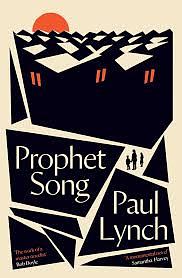You need to sign in or sign up before continuing.
Take a photo of a barcode or cover
Graphic: Child death, Confinement, Death, Gore, Gun violence, Suicidal thoughts, Torture, Violence, Forced institutionalization, Blood, Police brutality, Dementia, Kidnapping, Grief, Medical trauma, Abandonment, War, Injury/Injury detail
Yet the story is told from the perspective of a mother of four, and Lynch’s gorgeous writing (his voice is poetic and many sentences took my breath away) manages to expresses the internal emotions of what it might be like to live, and shepherd a family, through such events. It’s an astonishing imaginative achievement.
This is one of those war novels that makes the sheer horror of war—specifically, having your ordinary domestic home neighbourhood descend into a war zone—so very personal. The true horror of this novel is not just that such an event could unfold in any of our modern societies, but that such events are unfolding right now in countries around the world. I knew all that was happening before. But somehow, reading this novel made it feel maddening, agonizing, an utmost tragedy.
(But it was wonderfully written)
Graphic: Child death, Confinement, Death, Gun violence, Mental illness, Physical abuse, Torture, Violence, Police brutality, Dementia, Kidnapping, Grief, Murder, War, Injury/Injury detail, Deportation
Graphic: Child death, Death, Torture, Violence, Dementia, War, Injury/Injury detail


